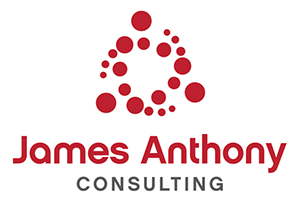The Value of Effective Communication in Software Development
Introduction
In the dynamic realm of software development and enhancement projects, clear and effective communication stands as a cornerstone for success. James Anthony Consulting (JAC) recognises this imperative and has developed a robust project communication plan template to guide project managers through the intricacies of efficient communication. This article delves into the value of such a plan and outlines best practices drawn from JAC's proven strategies.
The Importance of a Project Communication Plan
A well-structured communication plan is pivotal in aligning team efforts, managing client expectations, and navigating the complexities of software projects. It ensures that every stakeholder, from developers to clients, is on the same page, leading to:
Enhanced Collaboration and Team Synergy.
Streamlined Decision-Making Processes.
Improved Risk Management.
Consistent Client Engagement and Satisfaction.
JAC's Project Communication Plan: A Template for Success
JAC's template serves as a comprehensive guide for project managers, facilitating clear and efficient communication strategies. Key elements include:
Client Relationship Management: Fostering a strong relationship with the client is crucial. JAC's template addresses this by incorporating roles like the Customer Success Manager (CSM), who ensures ongoing client engagement and satisfaction.
Product Management Aspects: Understanding the user perspective and product lifecycle is essential. The template includes sections for identifying user representatives and categorising the product (e.g., MVP, Version 2.0, etc.).
Daily Coordination Practices: Both internal team coordination and client interactions are covered. This includes regular stand-ups, email updates, and the use of project management tools like Trello or Asana.
Risk and Maintenance Management: Highlighting the importance of regular risk planning, security audits, and maintenance protocols.
Best Practices for Implementing a Communication Plan
Customisation and Flexibility: Tailor the plan to fit the unique needs of each project and client.
Clarity and Conciseness: Ensure the communication is clear, avoiding ambiguities.
Regular Updates and Reviews: Maintain a rhythm of consistent updates and feedback loops.
Incorporate Feedback: Adapt and evolve the plan based on team and client feedback.
Conclusion
An effective project communication plan is not just a document; it's a strategic tool that can significantly enhance the efficiency and success of software development projects. By adopting JAC's structured approach and adapting it to their specific project needs, project managers can ensure smoother project execution and higher client satisfaction.
Please find a link here to JAC’s project communication plan template for software delivery teams. This is made freely available for your use, to help with your software projects. When using the template, you should consider adding details about project working groups and escalation paths, eg. user representative group, change management board, and project governance committee / steering committee.
For more insights and tailored solutions for your software development projects, contact James Anthony Consulting.

